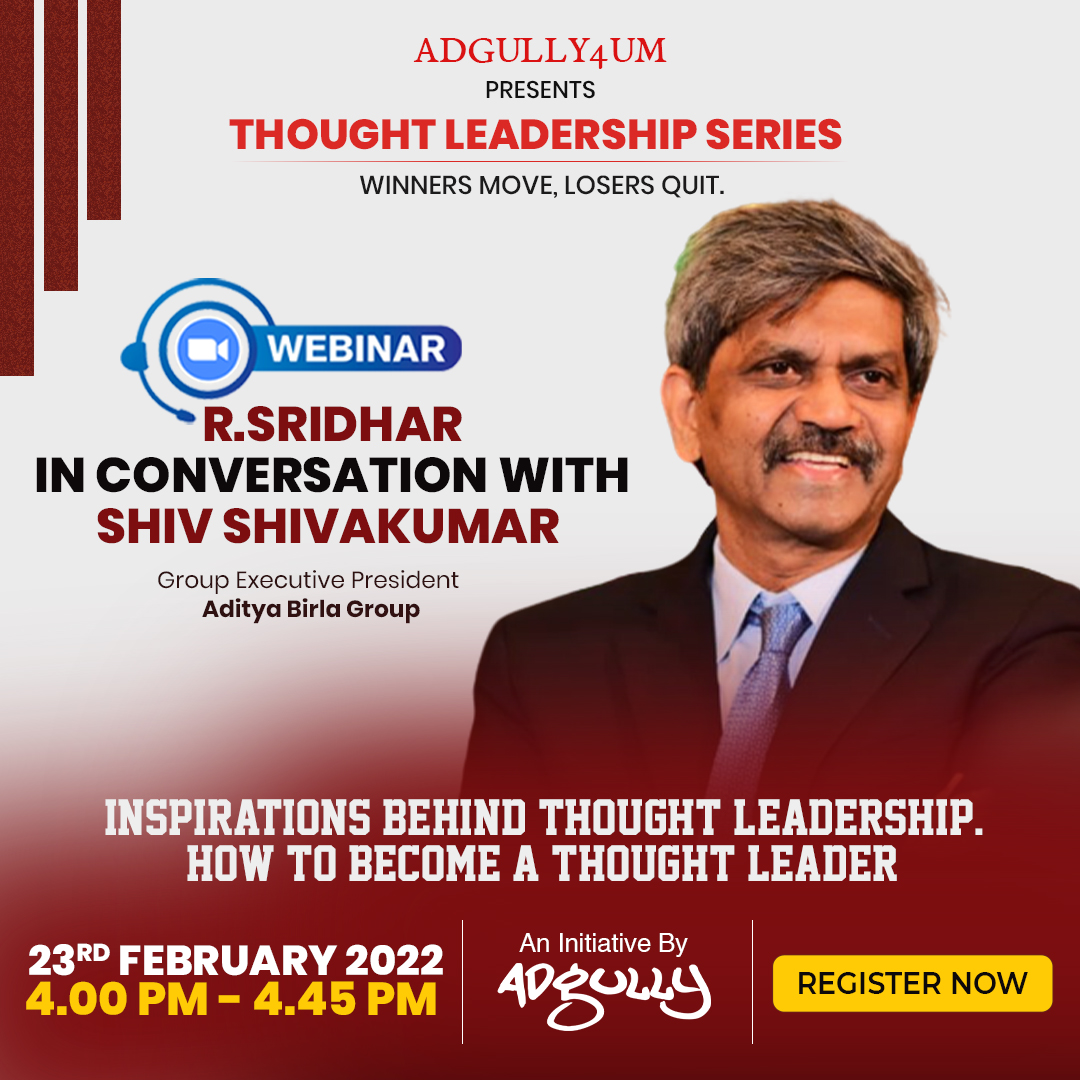Indepth: Understanding the ground realities of AI adoption by brands in India
Machine Learning (ML) and artificial intelligence (AI) are set to see heavy adoption and implementation in various media in the near future, as per the DAN Digital Report 2019. In the near future, data-driven decision-making and business strategies will be more transformative and will entail building and merging of different types of business models and its implementation.
Artificial Intelligence was a hot topic in 2018 and is likely to become more personalised this year. These new technologies have begun to play an important role in how and where consumers interact with brands. With growing personalisation, AI is poised to redefine brand experiences.
While globally, AI implementation by brands are far ahead that the Indian market, brands here are beginning to experiment with AI and machine learning in a more significant way. However, there are some ground realities that need to be examined first.
Adgully spoke to Amit Gujral, CMO, LG Electronics; Kalpit Jain, Group CEO, Netcore Solutions; and Rajiv Dingra, Founder & CEO, WATConsult, to have a deeper understanding of how brands can make to most of AI, the red flags to watch out for, the cost implications and more.
How brands can make the most of AI
Amit Gujral explained that Artificial Intelligence is a new art of technology that is being developed for consumer goods with one single consumer benefit in mind – ‘Convenience of Usage’. “For instance, how comfortable it is in terms of switching-on, switching-off, diagnose automatically in terms of some ill functioning of the product , searching variety relevant content basis the nature of product where AI is implemented, suggesting maintenance timelines automatically, etc. Thus, with such lifestyle enhancing and ease generating technology of AI is certainly the new phenomenon and is going to continuously find its usage more and more for user convenience in consumer goods.
He further said, “We at LG, in our consistent pursuit of technology excellence to provide not just cutting edge technologies but consumer needs centric technology solutions such as AI, IoT have brought in India almost all our products range in Home Appliances and Home Electronics with AI and IoT solutions.”
Marketing automation provides ease and efficacy in a marketer’s day-to-day repetitive marketing tasks, especially campaign execution, performance, and management. Kalpit Jain noted, “Data is the backbone of any marketing campaign, and it is derived from customers’ interaction across various channels (Emails, SMS, push notification, browser push notification) and devices. Marketing automation tools, especially multi-channel marketing automation and actionable analytics suite such as Netcore’s Smartech, help marketers utilise this data for hyper-personalised targeting of customers, in a way to drive better conversions or sales. Automated campaigns help marketers cater to the ideal of ‘The Segment of One’, delivering on 1:1 conversations that engage the Right person at the Right time on the Right channel with the Right message.
When Artificial Intelligence is added to the martech stack, it uses large-scale behavioural data to identify patterns which then help marketers draw insights into the customer’s intent, preferences, and profile. These insights prove critical to the growth of businesses, as they help to improve the understanding of user profile.
Marketing automation forms the crucial component of any marketing technology. It helps keep human intervention to a minimum, and helps optimise a marketer’s bandwidth for higher order tasks.
According to Rajiv Dingra, AI today is at a stage where it is centred around marketing gimmicks. He further elaborated on this, “When I say marketing gimmicks, it is purely talking about using tools like chat bots in an innovative way for a campaign.” He, however, saw a huge opportunity in AI once marketers start to centralise their data. “What one needs is one data, one view of the customer across multiple touchpoints. That impacts marketing and the ability to create absolutely diverse, effective, targeted and inspirational campaigns is mind boggling,” Dingra added.
He further said that AI is beginning to move from the stage of marketing gimmicks with marketers starting to scratch the surface. However, this would require investing in large commemorates to centralise data and create a single view of customers, which is a multiple level challenge. Dingra pointed out, “Most retail players now ask your mobile number before you buy anything from them offline. So, they are in the building phase and not the leverage phase. In the next 3-5 years, the impact that AI will have on marketing data automation and marketing data insights is going to be far bigger than its use of chat bots and campaigns.”
Brands’ understanding in how AI can help them
“AI in its all positive consumption is making in-roads not only in various business operations, but also in consumer goods functionality,” said LG’s Gujral. He added, “LG being an industry leader in Home Appliances & Home Electronics business, we have adopted AI and IoT in almost all our product verticals and also in our service operations. Being a multinational company with business spread across the world, various best practices are being shared across countries of operation.”
Netcore’s Jain also saw a great deal of interest and growth in the Indian martech scene. This is because businesses have come to realise that the proliferation of digital and Internet-driven technologies requires brands to ensure that they be relevant to an increasingly digital, tech-savvy audience. They are adopting marketing automation, analytics, and AI-based marketing in response to the change in the way that the customer is transacting today.
Jain added, “The customer expects the best-in-class seamlessly digital experience today irrespective of the size or type of the business. This has seen a large number of martech solutions providers pitch in with advanced tech solutions, including AI & ML. We are doing our bit to spread the word about our clients having experience a great boost in their campaign performance with the help of our AI engine named Raman. Most large Indian companies have plans to adopt AI this year. Globally, we are seeing an AI explosion and these are just early days. Speaking of global scenario, this year will see 100 per cent of IoT initiatives being supported by AI; 20 per cent of business content is already being authored by AI. By next year, 85 per cent of customer interactions will be managed by AI.”
Needless to say, as with any technology, early adopters stand to gain the most.
With the presence of a lot of global brands in the country, Indian brands look to their global counterparts for advice in adoption of newer technologies. Moreover, some brands are controlled by their global headquarters, so they are mature because they are being directed from there. Dingra noted that while some of them are organically mature, a lot of brands also follow where the majority is headed when they see others adopting AI.
According to Dingra, brands’ understanding of AI is average level and diverse to different brand managers and depends on their exposure to international campaigns as well as their exposure to agencies that understand AI well and position it well. AI technically comes from a technology background and the people from that technical background who work on AI do not have an advertising mind to showcase its applicability and sell it; on the other hand, the ones who do have the correct advertising mindset do not understand AI that well. So they miss on this creative technologist in this space. But with younger people joining the advertising industry, this will get fused into a role where you will see AI taking over in a bigger way in India.”
The red flags to look out for while incorporating AI
“AI, as we all know, is the most revolutionary advent in technology which is getting enhanced to be as close to the human mind in its working and thus, it poses equal opportunities of its usage of construction and – if not planned – accidental destruction. Thus, its usage has to be ensured to avoid any possible accidental working for non-desired acts,” cautioned Gujral of LG.
Netcore’s Jain pointed out that while a lot was being said about AI taking over the world, it was not true. He emphasised, “AI will augment a marketer’s capabilities by helping them analyse data in real time and drive business insights, but all these results depend on the quality of data available. Also, it is important for marketers to know which questions to ask, what their business priorities and goals are.”
He further said, “Simply incorporating AI is not enough. It has to be a strategic decision, to be applied with great diligence and a sense of commitment. To add to this latter point, AI will at some point in future get a lot more powerful and faster than it is even today, which is pretty fast already, but AI implementation does not guarantee immediate results. Some of our client brands have seen great results almost immediately, but a good AI programme has as its key aim the nurturing of detailed customer journeys by imparting a human touch to the entire process of decision-making. It’s a long process and the benefits will be incremental in nature.”
Dingra saw a dissonance between what the creative and the technology personnel were saying, and to adding to the problem was what the marketer understood from all this. According to him, this was due to the lack of creative technology in place. “The technology guys tell one thing; the creative guy packages and sells another thing, and that’s where it is all lost,” he added.
“While marketers, especially CMOs, are interested in AI, but maybe due to lack of complete understanding of – and in some cases even an aversion to – new technology, they look at it from a top service level and not deeper as to what impact it can create. But there are some marketers who read up and enhance their knowledge of AI and question their agencies strongly,” Dingra pointed out.
Cost implications of adopting AI tech
While Dingra stated that the cost depended on what kind of AI one bought, Gujral pointed out that any new technology in its initial phases came at a price. However, with growing adoption it eased up on the pockets.
Meanwhile, Jain noted, “AI is proving to be so critical to businesses that it is fast becoming a general purpose technology. In 2017, we had some 4 billion AI-powered smart devices being used by customers globally. Most operating systems have already integrated the AI component. AI is, therefore, becoming more and more cost-effective as we speak. AI can help to stop 86 per cent of cyber attacks, and can benefit businesses greatly in strengthening their security systems setup. Given these facts, we should be asking about the cost of not implementing AI.”
























Share
Facebook
YouTube
Tweet
Twitter
LinkedIn